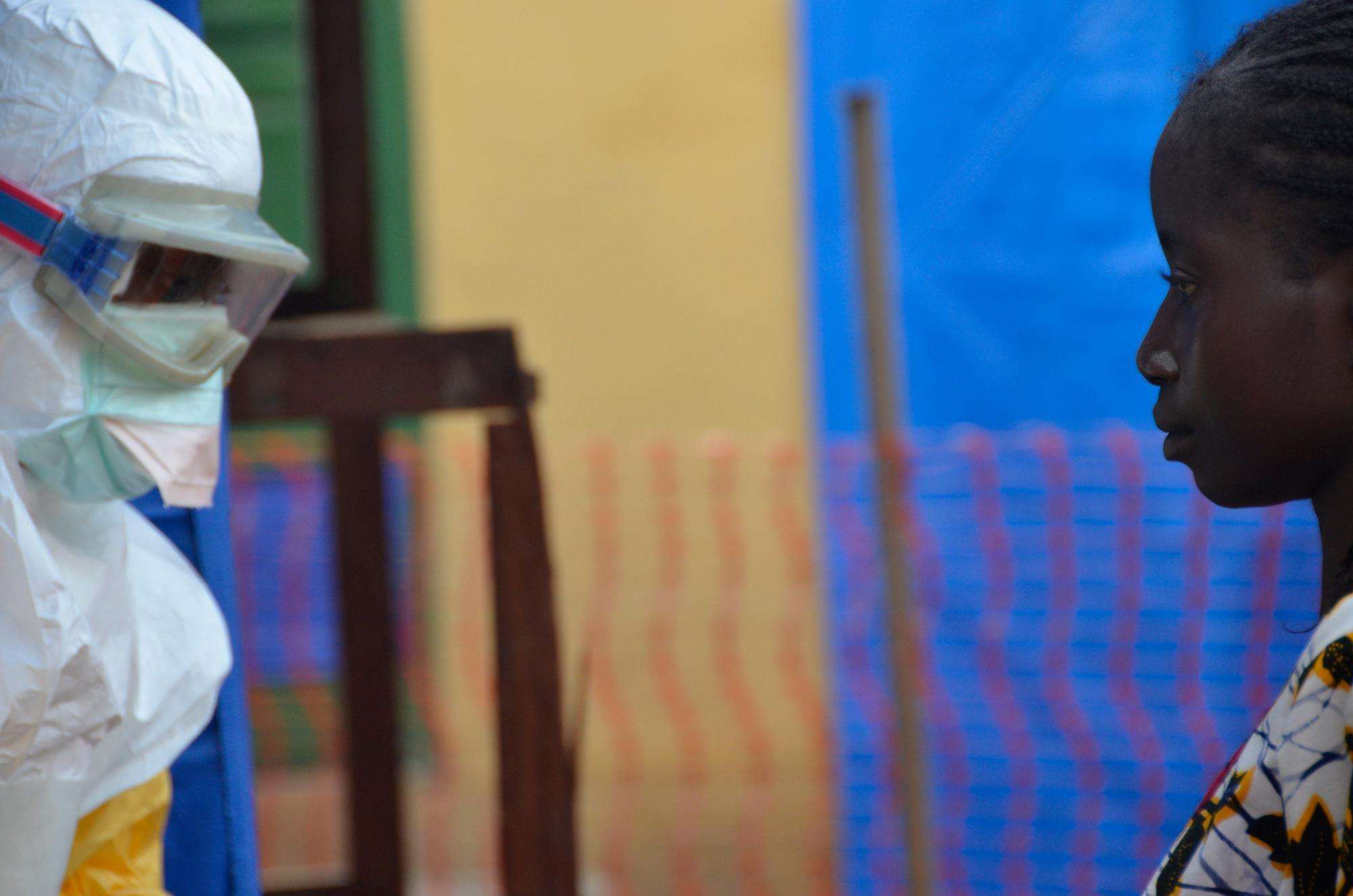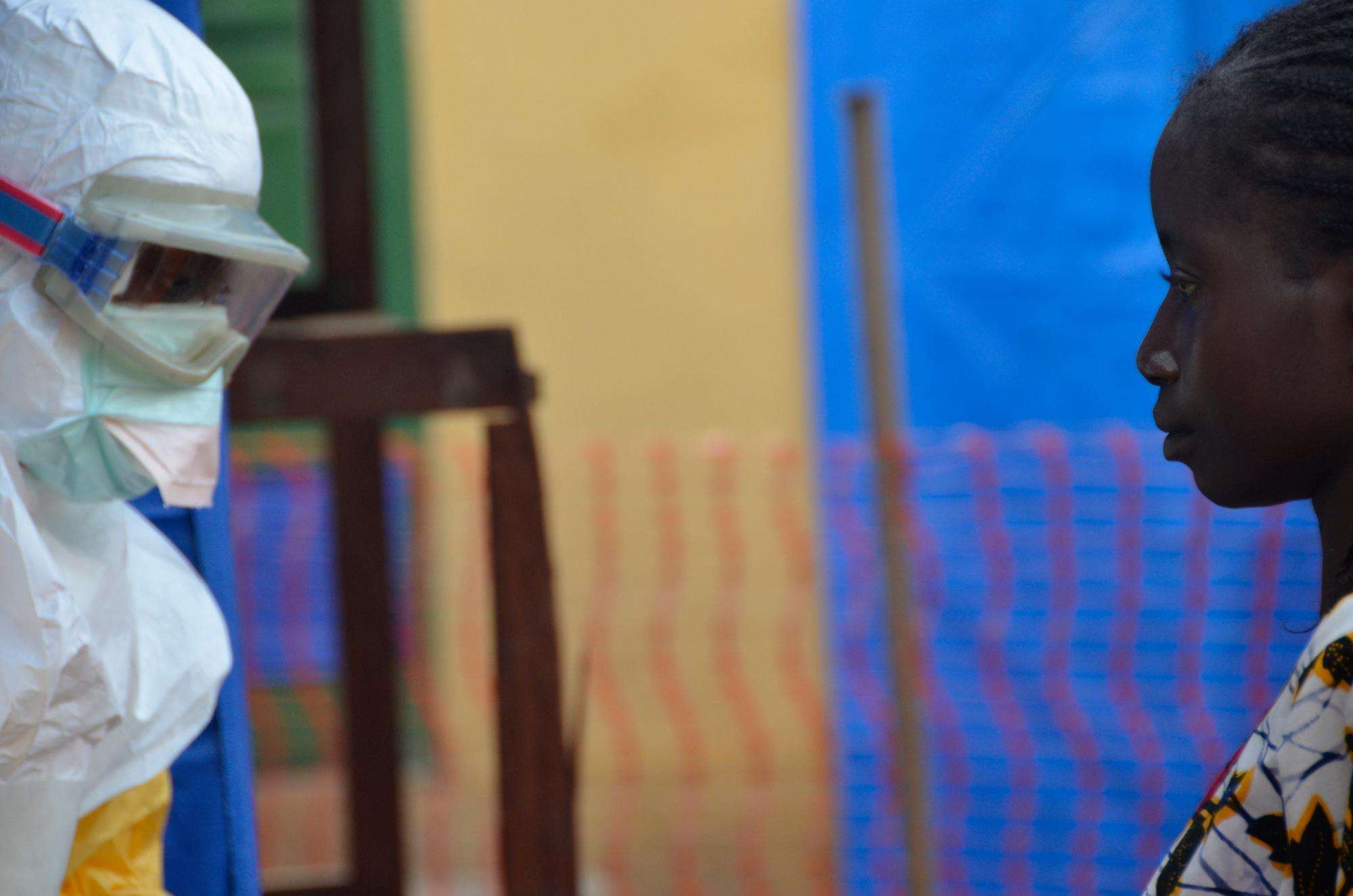In the Doctors Without Borders/Médecins Sans Frontières (MSF) Ebola case management center (CMC) in Guéckédou, Guinea, a team of seven provides psychosocial support to the people and communities affected by the disease. Their work is a difficult but indispensable part of the response to the epidemic.
Support Begins on Arrival
"There is still a lot of misunderstanding in the region about the disease,” says Alexi, supervisor of MSF’s psychosocial team in Guéckédou. “Rumors and word-of-mouth travel faster than our health promotion team, and this has an impact on the communities. People with Ebola symptoms arrive at the center confused, in a state of terrible distress. In this situation our first task is to establish trust."
If a patient has been cast out of his or her community, Alexi and his team meet with them. They try to explain that people can survive Ebola, and that the sick and recovered need the support of their families. "Several survivors now work in our team and their input is precious,” says Alexi. “When they describe their own experience to a patient and his or her family, perceptions of Ebola and of the CMC can change."
Inside the Patient’s Ward
The psychosocial support staff must still protect themselves and others by wearing gear that covers their body and face. "What makes this task difficult is the visual distance and lack of contact between us and the patient,” says Reine Lebel, an MSF psychologist in Guéckédou.
Lebel has worked for MSF during emergencies before, including in Haiti and the Philippines; but this task, she says, is different. “In other contexts, I take children in my arms and can take a patient’s hand. They see my face. Here we must find other ways to relate to a patient. So we focus on the needs of each person. It's the little personal things that we must discover to make them want to fight the disease, continue to drink, eat, and take medication.”
“A couple of weeks ago, Sebastian [patient name changed] came alone to the center after his wife and two sisters died of Ebola,” remembers Lebel. “Being a nurse, he was accused of poisoning people in his village and was essentially cast out. When I first approached him, he was angry, saying ‘What do you want from me? I don’t want anything!’ He was depressed and had persuaded himself that he deserved to die. Then we discovered his weakness for tonic! We brought him one can after another, and slowly he started to eat to accompany his tonic. He recovered and was discharged."
"The hardest thing for us are the children,” says Alexi. “Children are anxious on arrival, and their fear intensifies in the ward, seeing other patients ill with Ebola. We bring them toys, but when other patients feel a bit better they sometimes start taking care of a child. This kindness is an immense source of strength for a child."
Dignity in Life and Death
"We can never lose sight of what it is about, showing respect and preserving the dignity of the patient and his family,” says Lebel. “And this also applies to a deceased patient."
Because the Ebola virus remains active in the body of a deceased person, a traditional funeral, during which bodies are washed and touched by the family, is not possible. But that does not mean that a respectful burial cannot take place. At the MSF center, trained hygienists wearing protective gear wash the body and place it in a body bag. The upper part is left open and flowers are arranged around the deceased for a viewing by the family. Then it is up to Bakari, a member of the psychosocial support team, to take a picture of the person's face—an image that will help the family through their mourning.
It’s a task that weighs heavily on Bakari’s shoulders. "Last week, we had eleven deaths in one day, and I had to prepare them all. That night I started to have nightmares, and since then I only work every second day." An MSF psychologist also provides assistance to staff members working on the outbreak.
Leaving the Center
Recovered patients rebuild their lives after Ebola and remain in contact with the team. "A survivor may face stigma, doubt, or fear [from] his or her community,” says Lebel. “The survivors working in our team play an important role in helping families understand that a survivor is now no longer contagious.”
Currently, six staff members in Guéckédou, twelve at the MSF CMC in Conakry, and four at the Macenta transit center provide psychosocial support to people affected by Ebola.





